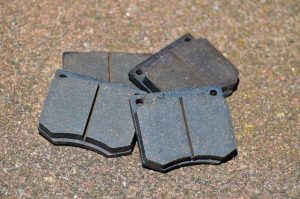 With so many innovative safety features available in newer cars, you may not realize that there is one crucial system in every vehicle that keeps you and your passengers safe. The brakes allow you to slow down and stop, so if any part of the braking system isn’t in good condition, you put yourself at serious risk. Watch for these warning signs that will let you know when it’s time to replace your brakes.
With so many innovative safety features available in newer cars, you may not realize that there is one crucial system in every vehicle that keeps you and your passengers safe. The brakes allow you to slow down and stop, so if any part of the braking system isn’t in good condition, you put yourself at serious risk. Watch for these warning signs that will let you know when it’s time to replace your brakes.
Listen for Strange Sounds
One of the first indicators that your brakes are going out is a squeaking or grinding sound. This means that the metal shim, also referred to as the indicator, is emitting the audible warning that the brake pads are wearing thin. The pad should be at least ¼-inch in thickness to properly allow your vehicle to stop.
One thing to consider is that if you have recently parked your car outside during a rainstorm or other onslaught of water, the moisture can cause the brake pads to squeak for a few stops until the top layer of rust has worn off. If the squeaking or grinding sound stops after you have been driving for several minutes, your brake pads are probably fine.
Vibration
When you apply the brakes, your car should ease to a stop smoothly. If the steering wheel vibrates when you brake, it’s crucial to take your car in for an inspection. If the rotors are worn down, which is typically a result of continuing to drive on worn out brake pads, this problem causes excessive vibration. You might notice that it feels similar to how the vehicle feels when you have to stop very suddenly in a car that has antilock brakes. A mechanic can grind down the rotors in your vehicle to create a smooth surface again and replace the brake pads to protect them from further damage.
Pulling to One Side
When your car pulls either to the right or left when you’re driving in a straight line, this is also a possible indicator of a problem with your brakes. It could also mean that you need your alignment repaired, but if that doesn’t fix the issue, have a mechanic check out the brakes. The linings of your brakes might be wearing unevenly due to damage internally, or you could have some type of foreign object lodged within the reservoir of brake fluid. Your mechanic can make an adjustment to the brakes so they’ll wear evenly, if that’s the problem, or drain and replace the brake fluid.
Decreased Pedal Response
When you press on the brake pedal, it should immediately engage the system and stop your car. If the pedal feels spongy or slow to respond, take the car in for repair immediately. You could have air in the brake lines that decreases the system’s ability to safely stop your car. This can also signal a low supply of brake fluid.
No matter what the problem is that is causing one of these signals, you should never keep driving a car that is having brake problems.
Image via Pixabay





